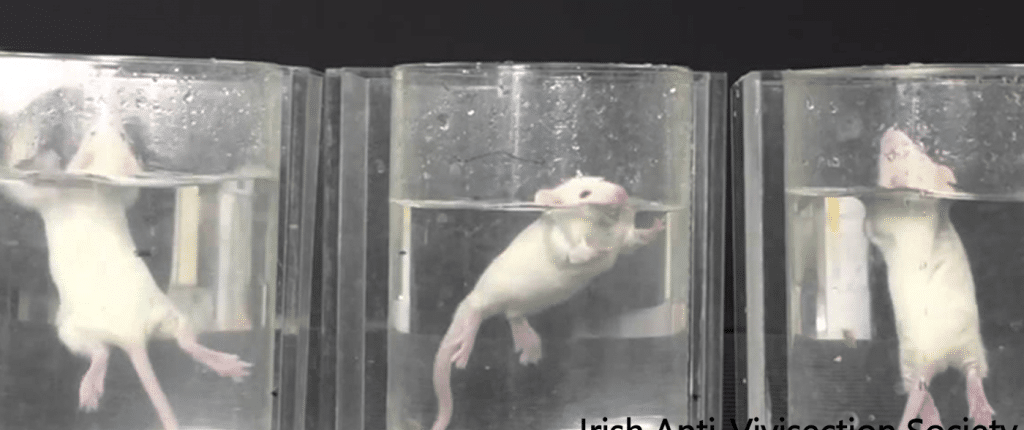In an unprecedented move, pharmaceutical giant Johnson & Johnson has banned water tank tests on small animals following discussions with animal rights organization, People for the Ethical Treatment of Animals (PETA).
This is a huge victory for animals, as the multinational company committed to neither conduct nor fund the forced swim test, in which small animals like mice are dropped into beakers of water. They then swim frantically to keep from drowning with cold-hearted experimenters watching as they struggle to keep their heads above water. In the US alone, more than 100 million mice and rats are killed in laboratories every year.
The swim test method of testing is used to simulate human depression, based on the assumption that a depressed animal gives up trying to escape. The swim test was popularised in 1970 and supposedly designed to gauge the anti-depressant qualities of medicinal drugs. More recently, this test has been heavily criticised by scientists. The truth is that the test has failed to produce any new, approved anti-depressant treatments for humans.
The National Association for Biomedical Research says rodents closely resemble the genetic make-up of humans and it is for this reason that they are the animal of choice for tests and research. PETA claims that hundreds of thousands of mice, rats, guinea pigs, hamsters, and gerbils have been subjected to this horrifying test. The 100 million mice and rats that are killed in barbaric ways each year are either slowly poisoned to death, subjected to painful burn experiments or used in psychological experiments that induce terror, anxiety, depression and helplessness.
Johnson & Johnson’s decision comes after biopharmaceutical AbbVie made a decision to ban the test. In December, AbbVie was the first to take a public stand against the abuse of animals in the swim test. Thanks to an appeal by PETA, AbbVie pledged not to conduct nor fund the swim test.
According to studies by Nature Research, there has not been a single sign or symptom of human depression modelled in the test.
David Barritt, Chief Campaigner for Network for Animals (NFA), said this was a step in the right direction. “Other companies should follow suit and take the necessary steps to end this kind of cruelty. This useless testing method only points to bad science and unethical behavior. It also has no relevance to human depression,” he says.
“Statistics tell us that hundreds of millions of animals are being tortured every year at the hands of huge companies. We need to collectively and actively engage similar companies and force them to entirely shut down this inhumane practice.”

